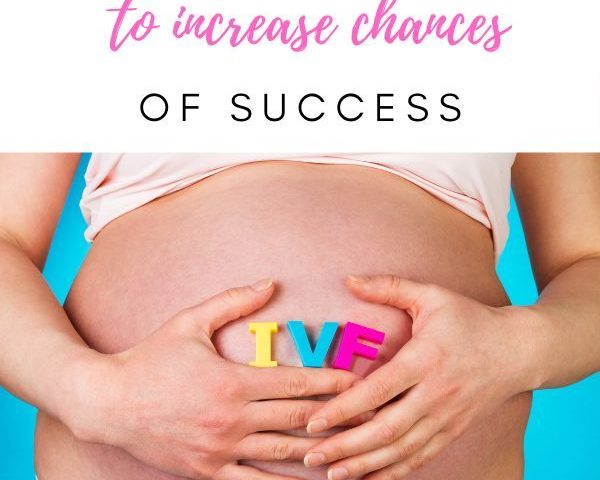
J.D. Vance on IVF: A Deep Dive into His Views, Life, and What It Means for You
March 29, 2025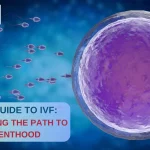
Navigating Reddit IVF: Your Ultimate Guide to the Online Fertility Community
March 29, 2025IVF Success Rates: What You Need to Know to Boost Your Chances
In vitro fertilization (IVF) is a life-changing option for many people dreaming of starting a family. But let’s be real—when you’re thinking about IVF, the big question on your mind is probably: Will it work for me? Success rates can feel like a mysterious code, but they don’t have to be. This article is here to break it all down for you—think of it as your friendly guide to understanding IVF success rates, packed with insider info, surprising facts, and tips you won’t find just anywhere. Whether you’re new to the idea or deep into planning, we’ve got you covered with everything from the latest research to practical steps you can take right now.
Let’s dive into the world of IVF success rates—what they mean, what affects them, and how you can tilt the odds in your favor.
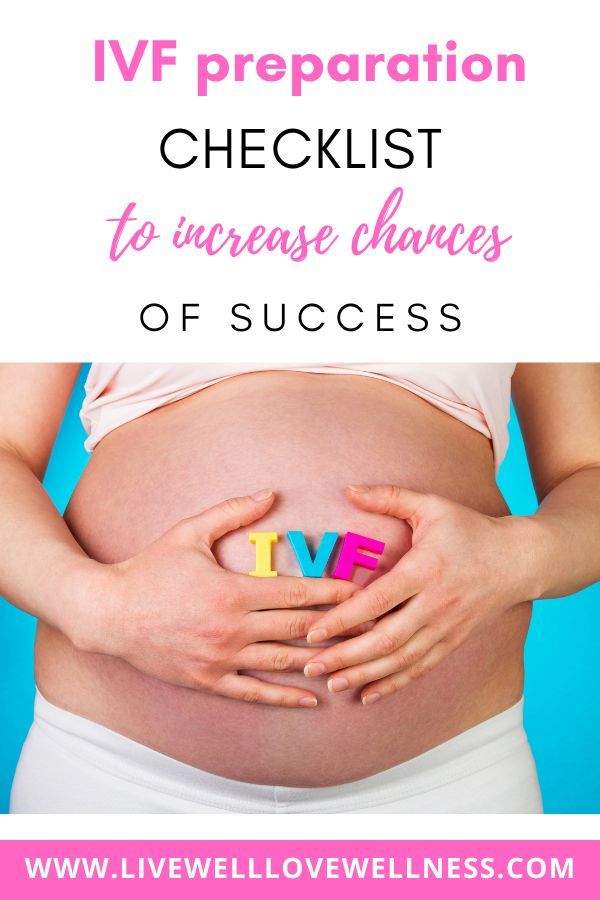
What Are IVF Success Rates, Anyway?
IVF success rates tell you the chance of having a baby after going through the process. It’s usually measured as the percentage of IVF cycles that lead to a live birth—meaning a healthy baby you get to take home. But here’s the catch: not every clinic calculates it the same way, and not every “success” story starts the same. Some stats focus on pregnancies, while others zoom in on actual births. For the everyday person, it’s the live birth rate that matters most.
So, what’s the average? In the U.S., about 1 in 3 IVF cycles results in a live birth for women under 35. That number drops as age goes up, but don’t let that scare you—there’s a lot more to the story. Success isn’t just about numbers; it’s about your unique journey.
Why Should You Care?
Knowing the odds helps you set realistic expectations. Plus, it’s a starting point to figure out what you can do to improve your chances. Think of it like planning a road trip—you wouldn’t just hop in the car without checking the map, right?
A Fun Fact to Kick Things Off
Did you know the first IVF baby, Louise Brown, was born in 1978? Since then, over 10 million babies have come into the world thanks to IVF. That’s a lot of birthday parties—and a sign this process has some serious staying power!
The Biggest Factors That Affect IVF Success Rates
Success in IVF isn’t random—it’s influenced by a bunch of things. Some you can control, some you can’t. Let’s break down the top players so you know what’s at work behind the scenes.
Age: The Clock Everyone Talks About
Age is the MVP when it comes to IVF success. Why? Because your eggs age with you, and younger eggs are usually healthier and more likely to turn into embryos that stick around.
- Under 35: Around 32% of cycles lead to a live birth.
- 35-37: Drops to about 25%.
- 38-40: Hovers around 19%.
- Over 40: Falls to 11% or lower, with a steep dip after 44.
But here’s something cool: if you use donor eggs (which come from younger women), the success rate jumps back up—sometimes over 50%, no matter your age. It’s like borrowing a younger version of yourself!
Real-Life Tip: If you’re over 35 and worried, ask your doctor about freezing your eggs earlier. It’s like putting a pause button on time.
Your Fertility History: The Backstory Matters
Have you had a baby before? Been pregnant but lost it? These details can clue doctors into how your body might respond to IVF. Women who’ve had a successful pregnancy often have better odds—think of it as proof your body knows the drill.
Science Says: Studies show women with a history of miscarriage still have a decent shot at IVF success, especially if the issue was something fixable, like a hormone imbalance.
Lifestyle: Your Daily Habits Play a Role
Smoking, drinking, and even your coffee habit can mess with your chances. Yep, that morning latte might be a sneaky saboteur! Research shows smokers have up to a 50% lower success rate than non-smokers. Extra weight or being super thin can also throw things off by messing with your hormones.
Quick Checklist:
✔️ Quit smoking (even vaping’s a no-go).
✔️ Cut back on alcohol—aim for none during treatment.
✔️ Keep caffeine under 200 mg a day (about one small cup).
❌ Don’t crash diet—steady weight is best.
Embryo Quality: The Tiny Star of the Show
Not all embryos are created equal. Doctors grade them based on how they look under a microscope—think of it like picking the ripest fruit at the store. Higher-quality embryos have a better shot at implanting in your uterus.
Fun Tidbit: Some clinics use time-lapse cameras to watch embryos grow 24/7. It’s like a reality show for your future baby—and it helps pick the winners!
The Clinic You Choose: Not All Are Equal
Ever wonder why some clinics brag about higher success rates? It’s not just luck. Top clinics have better tech, more experienced staff, and sometimes pickier patient screening. A small clinic might have a cozy vibe, but a big one could have cutting-edge tools.
Pro Tip: Check the CDC’s annual IVF success rate report online—it’s like a report card for clinics across the U.S.
Digging Deeper: Lesser-Known Factors That Make a Difference
Now, let’s get into some stuff you won’t find in every article. These are the hidden gems that could give you an edge—or at least some peace of mind.
Stress: The Silent Trouble-Maker
You’ve probably heard “just relax” a million times, and it’s annoying, right? But there’s some truth here. Chronic stress can mess with your hormones, and one study found stressed-out women had a 20% lower chance of IVF success. It’s not about being Zen 24/7—it’s about finding small ways to chill.
Try This:
- Take 5-minute breathing breaks: Inhale for 4 seconds, hold for 4, exhale for 4.
- Watch a silly cat video—laughter’s a legit stress-buster.
Your Diet: Food Is Your Secret Weapon
Most articles say “eat healthy,” but let’s get specific. A Mediterranean diet—think fish, nuts, veggies, and olive oil—has been linked to higher IVF success. One 2023 study showed women who ate this way had a 15% better implantation rate. Bonus: it’s tasty!
Meal Idea: Grill some salmon with a side of quinoa and spinach. It’s easy, and your body will thank you.
Sleep: The Underdog of Fertility
Sleep’s not just for beauty—it’s for babies, too. Women who get 7-8 hours a night have better hormone balance, which can boost egg quality. A 2024 study found poor sleepers had a 10% drop in success rates. Crazy, right?
Nighttime Hack: Dim the lights an hour before bed—your phone’s blue light is a sleep thief.
Vitamin D: The Sunshine Boost
Low vitamin D levels are sneaky—they’re linked to lower IVF success, but most people don’t even know they’re deficient. A 2023 study found women with healthy vitamin D levels (over 30 ng/mL) had a 25% higher chance of a live birth.
Action Step: Get a simple blood test to check your levels. If they’re low, a supplement or some safe sun time could help.
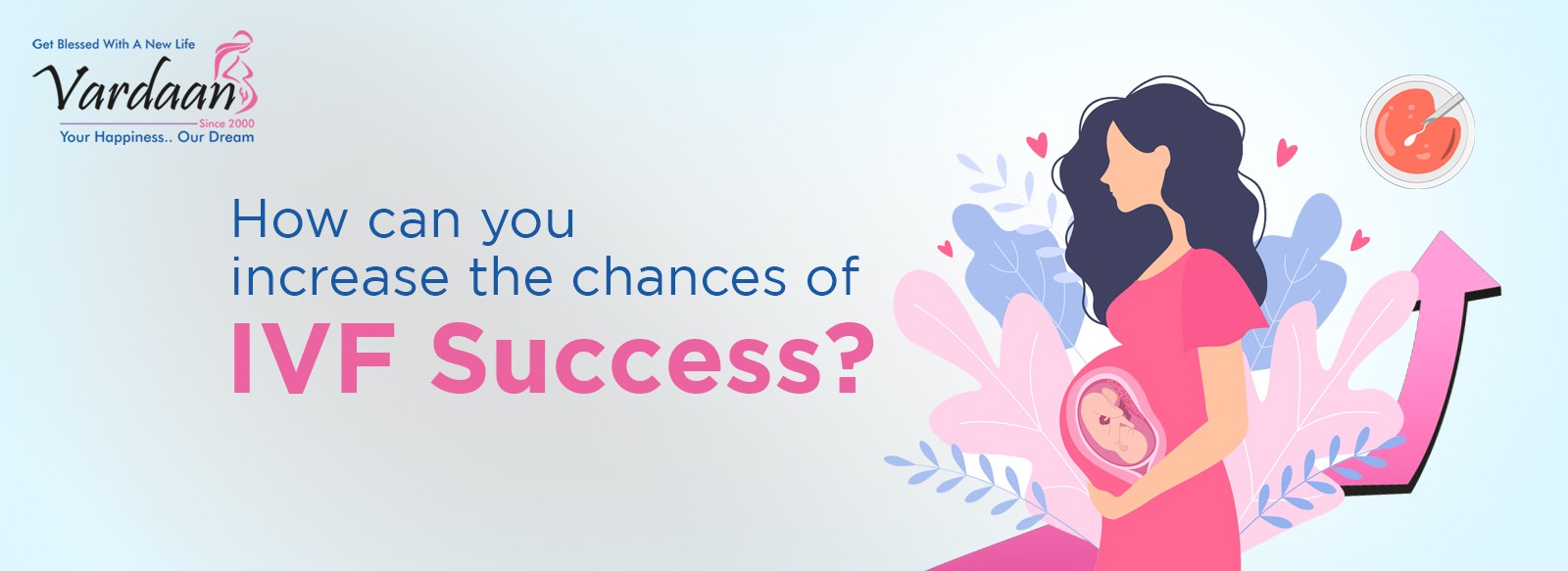
Fresh Research: What’s New in 2025?
IVF isn’t standing still—science is always cooking up something new. Here’s the latest scoop from 2025 that could change the game.
AI-Powered Embryo Selection
Clinics are now using artificial intelligence to pick the best embryos. It’s like having a super-smart robot assistant that analyzes embryo growth patterns. Early data from 2025 shows AI can boost success rates by up to 10% compared to old-school methods.
Why It’s Cool: It takes the guesswork out of choosing embryos, so you’re betting on the strongest players.
Stem Cell Therapy for Egg Quality
Researchers are testing ways to use stem cells to “refresh” older eggs. It’s still experimental, but a 2025 trial showed promise—some women over 40 saw egg quality improve by 20%. It’s not ready for prime time yet, but it’s a glimmer of hope.
Expert Quote: “Stem cell research could rewrite the rules for older patients,” says Dr. Emily Chen, a fertility specialist at Yale.
Frozen vs. Fresh Transfers: The Debate Heats Up
For years, fresh embryo transfers were the go-to. But 2025 data shows frozen transfers might edge out a win—think 5-8% higher success rates. Why? Freezing gives your body a break after egg retrieval, letting your hormones settle.
Practical Advice: Talk to your doctor about freezing all embryos and doing a transfer later—it’s becoming the hot trend for a reason.
Step-by-Step: How to Boost Your IVF Success Rate
Ready to take action? Here’s a game plan to stack the deck in your favor. These steps mix science, common sense, and a little bit of fun.
Step 1: Get Your Body Ready
- Timeframe: Start 3 months before your cycle.
- What to Do: Eat a fertility-friendly diet, exercise lightly (like walking or yoga), and aim for that 7-8 hours of sleep.
- Why It Works: Your eggs need time to mature, and a healthy body sets the stage.
Step 2: Pick the Right Clinic
- How: Look up success rates on the CDC site, read reviews, and visit a few places.
- Ask This: “What’s your live birth rate for my age group?”
- Red Flag: If they dodge the question, keep shopping.
Step 3: Fine-Tune Your Lifestyle
- Cut Out: Smoking, excess booze, and late-night Netflix binges.
- Add In: A daily multivitamin with folic acid and a 10-minute stress break.
- Bonus: Swap soda for water with a splash of lemon—hydration helps!
Step 4: Team Up With Your Doctor
- Chat About: Donor eggs, genetic testing, or extra treatments like acupuncture (some swear by it!).
- Science Bit: A 2024 study showed acupuncture might bump success by 5-10% for some women.
Step 5: Stay Positive (But Real)
- Mindset: Hope for the best, but know it might take a few tries.
- Support: Join an IVF group online—other people’s stories can lift you up.
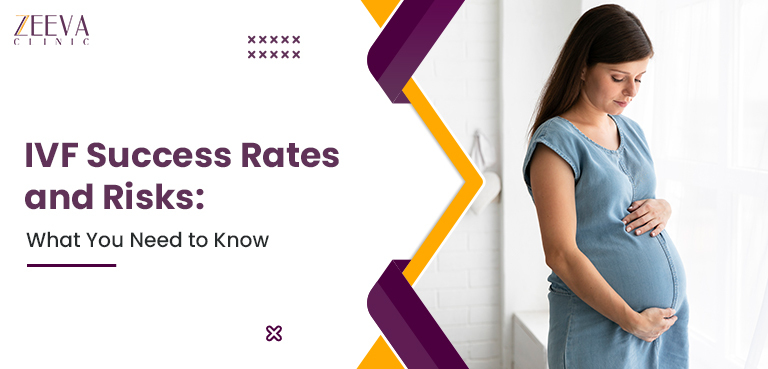
Busting Myths: What Doesn’t Affect Success (But You Might Think It Does)
There’s a ton of chatter out there about IVF, and not all of it’s true. Let’s clear up some myths that might be stressing you out.
Myth 1: More Embryos = Better Odds
Nope! Transferring a bunch at once doesn’t guarantee success—it just raises the chance of twins (and complications). Single embryo transfers are the gold standard now.
Myth 2: IVF Always Works on the First Try
Only about 20-35% of first cycles end in a live birth. It’s a marathon, not a sprint—many folks need 2-3 rounds.
Myth 3: Expensive Add-Ons Are a Must
Clinics might push extras like immune therapies or fancy supplements, but a 2023 review found most don’t boost success rates. Save your cash unless there’s solid proof.
Expert Quote: “Stick to the basics—add-ons are often more hype than help,” says Dr. Mark Taylor, a reproductive endocrinologist.
Real Stories: What IVF Success Looks Like
Numbers are great, but stories hit different. Here are two quick peeks into real IVF journeys—proof it’s not just about stats.
Sarah’s Story: Beating the Odds at 39
Sarah was 39, had two miscarriages, and was told her odds were slim. She switched clinics, cleaned up her diet, and used frozen transfers. Third cycle was the charm—she’s now mom to a bubbly 2-year-old. Her secret? “I stopped Googling every symptom and trusted my team.”
Mike and Jen: The Donor Egg Twist
Mike and Jen tried IVF for years with no luck—Jen was 42, and her eggs weren’t cooperating. They switched to donor eggs, and bam—success on the first try. “It felt weird at first,” Jen says, “but seeing our son’s smile erased all that.”
The Emotional Side: Handling the Rollercoaster
IVF isn’t just about your body—it’s a mind game, too. The waiting, the hoping, the what-ifs—it’s a lot. Here’s how to keep your sanity.
Expect the Unexpected
Some days you’ll feel on top of the world; others, you’ll want to hide under the covers. That’s normal. One study found 40% of IVF patients deal with anxiety—know you’re not alone.
Build Your Crew
Tell a friend, join a support group, or even vent to your dog. Having someone to lean on makes the lows less lonely.
Celebrate Small Wins
Got through an injection? High-five yourself. Every step’s a victory, even if the big prize takes time.
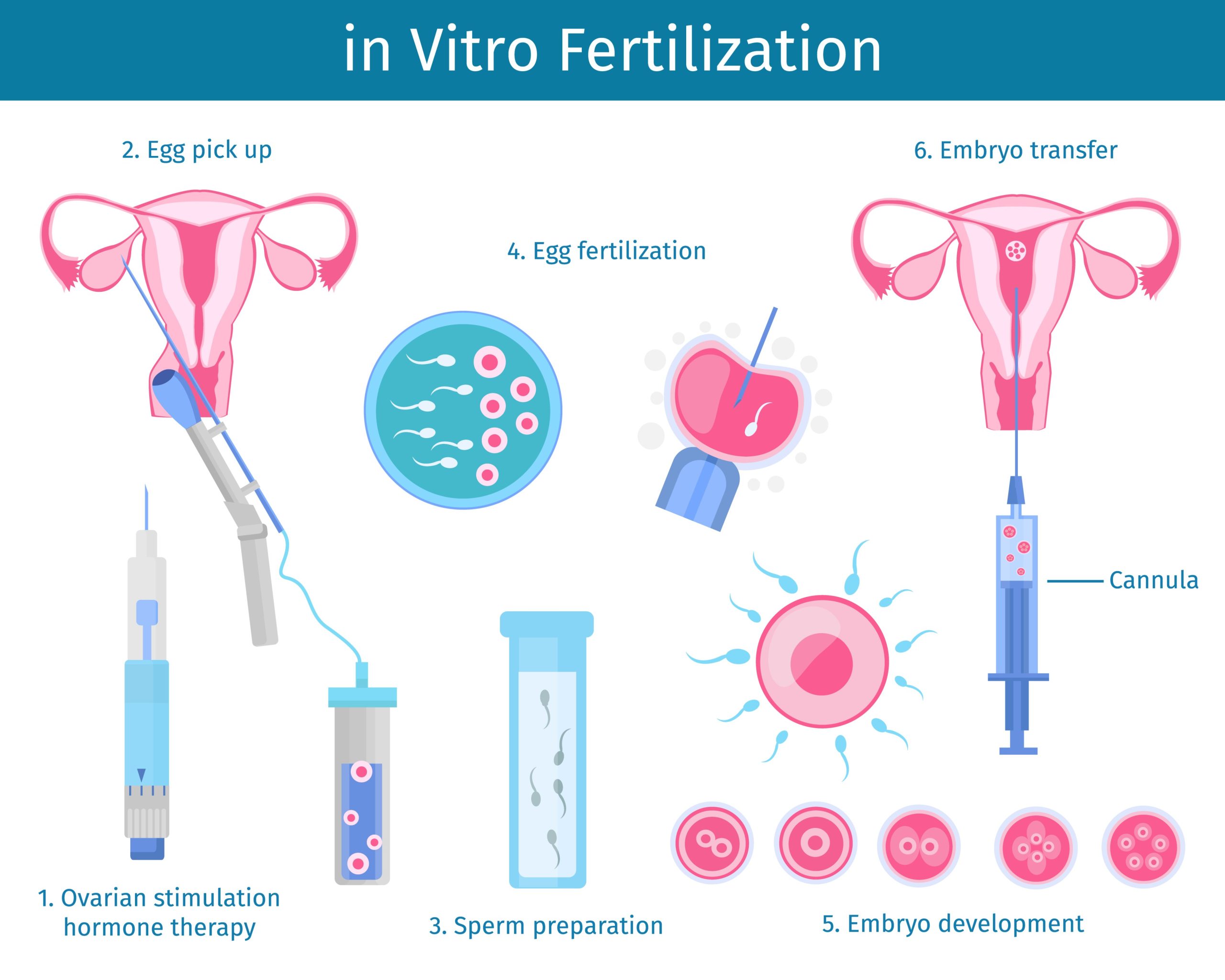
Costs and Coverage: The Money Talk
IVF isn’t cheap—$12,000 to $17,000 per cycle in the U.S., plus meds. But don’t panic—there are ways to make it work.
Insurance: A Mixed Bag
Only 14 states require insurance to cover IVF, so check your plan. If you’re in a no-coverage state, some clinics offer payment plans or discounts.
Hidden Savings
- Mini-IVF: Uses less meds, costs less (around $5,000), and works for some.
- Grants: Groups like Baby Quest give out cash to help cover costs—apply early!
Expert Quote: “Don’t let cost stop you—explore every option,” advises Dr. Lisa Harper, a fertility finance counselor.
Your IVF Success Toolkit: Putting It All Together
Let’s wrap this up with a handy toolkit—everything you need to feel ready.
Quick Stats Recap
| Age Group | Live Birth Rate |
|---|---|
| Under 35 | 32% |
| 35-37 | 25% |
| 38-40 | 19% |
| 40-42 | 11% |
| Over 44 | 4% |
Top 5 Must-Dos
- Pick a clinic with a solid track record.
- Eat well, sleep well, stress less.
- Ask about frozen transfers and donor eggs.
- Test your vitamin D (and fix it if needed).
- Keep hope alive—but stay real.
Questions to Ask Your Doctor
- What’s my personal success rate based on my age and health?
- Should I freeze my embryos?
- Are there any new treatments you recommend?
